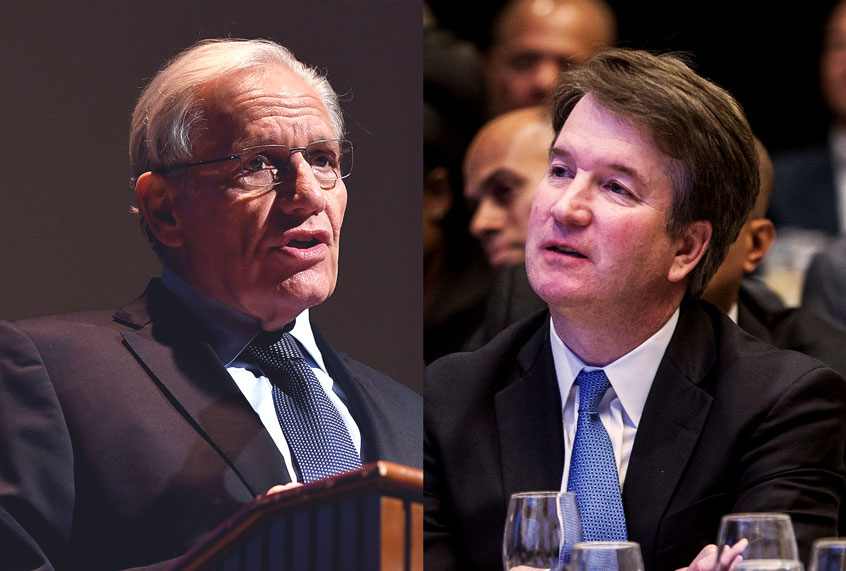The Washington Post stopped veteran journalist Bob Woodward from outing Supreme Court Justice Brett Kavanaugh as one of the sources for his 1999 book, according to New York Times media critic Ben Smith.
Woodward was set to expose Kavanaugh as an anonymous source for his book, “Shadow: Five Presidents and the Legacy of Watergate,” which was written when Kavanaugh served as a member of independent counsel Ken Starr’s team during its investigation into former President Bill Clinton. But Martin Baron, the executive editor of The Post, stopped him from doing so, sources at the outlet told Smith.
The revelation was discovered when journalists at The Post dug into Kavanaugh’s history in the outlet’s publishing system during his 2018 Supreme Court confirmation process.
The journalists found an article in which Woodward, who protected the identity of the Watergate source “Deep Throat” for three decades, “was going to unmask” Kavanaugh as one of the sources quoted in the book.
“Mr. Woodward was planning to expose Mr. Kavanaugh, because the judge had publicly denied — in a huffy letter in 1999 to The Post — an account about Kenneth Starr’s investigation of President Bill Clinton that he had himself, confidentially, provided to Mr. Woodward for his book,” Smith wrote. “The article, described by two Post journalists who read it, would have been explosive, arriving as the nominee battled a decades-old sexual assault allegation and was fighting to prove his integrity.”
The article was “nearly ready” when Baron urged Woodward not to breach his arrangement with Kavanaugh to protect his identity, according to Smith. Baron and other editors “persuaded Mr. Woodward that it would be bad for The Post and ‘bad for Bob’ to disclose a source.”
The story never ran as a result.
Smith wrote on Twitter that most of his sources at The Post agreed that Baron was right to protect the source but some journalists disagreed.
“If an anonymous source publicly disputes information they provided, journalists have absolutely no obligation to uphold a deal that’s already been broken,” Slate’s Ashley Feinberg wrote.
“The Washington Post should explain what its policy is regarding unnamed sources,” The Intercept’s Jon Schwarz tweeted. “Do they grant anonymity on the condition that the sources are telling them the truth? Or do they grant anonymity that’s irrevocable even if a source lies to them and they publish the lie?”
“Bob Woodward was sitting on clear evidence that seems to show Brett Kavanaugh had a history of brazen, shameless public lying—and the Post never ran the story,” Reuters reporter Avi Ascher-Schapiro said.
It remains unclear how much the story would have influenced Kavanaugh’s confirmation. The judge faced decades-old allegations of sexual assault and questions about his impartiality during the confirmation process. He was confirmed by a 50-48 in a mostly party-line vote.

